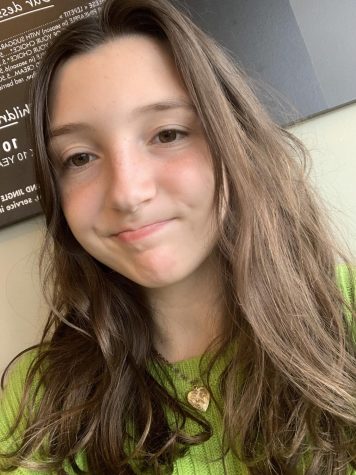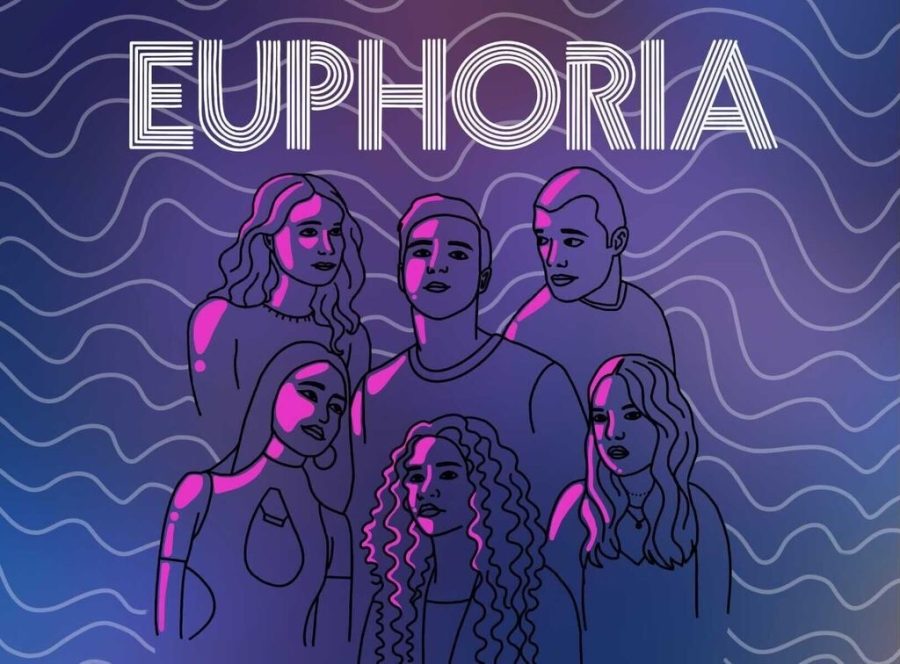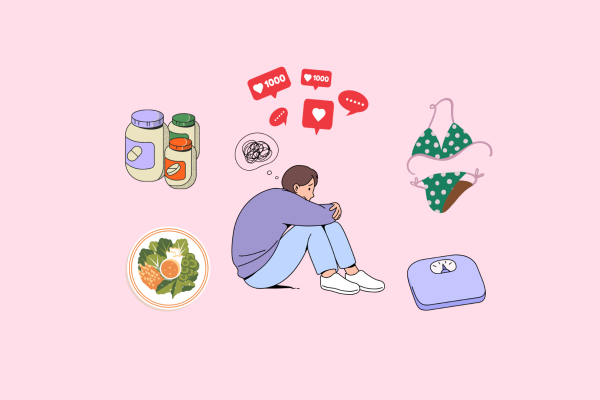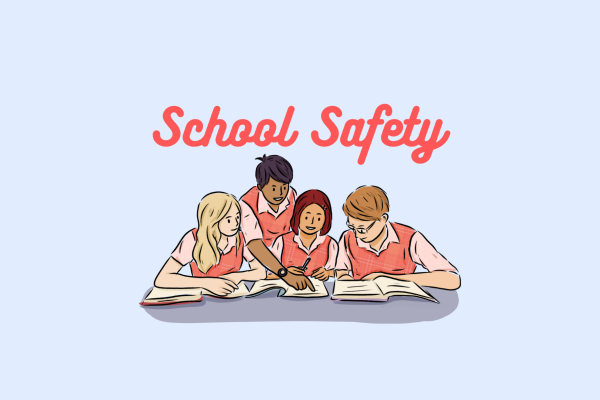A Less Euphoric Perspective On Euphoria
Popular teenage drama ‘Euphoria’ glamorizes many issues teens face today. Photo courtesy of Hadley Norris.
What show poses an image of a world so close to our own yet so far away? A utopia so similar to reality but so detached all the same? A world that has a hold that revolts us and also has us feening for more? That, in all its essence, is the mismanaged world of Euphoria High.
Euphoria is a popular teen drama presented by streaming service HBO. Euphoria covers the somewhat dysfunctional lives of a group of teens in the communal suburbs of LA. The show first took off in the summer of 2019, amassing a following of late middle school and high school girls who saw the ability to love the characters despite their shortcomings. The show was originally intended for an 18+ audience, but in vain of all attempts, it managed to grab the attention of a much younger demographic.
The show, starring renowned actress Zendaya Coleman and other talented actors/actresses, covers topics such as substance abuse, teenage pregnancy, gang violence, domestic abuse, and the spectrum of sexuality. After watching this show in full depth to gather my own opinion, one thing stands alone in my mind; why does Euphoria take place in high school?
The actors of Euphoria are college/post-college age. This is a given, considering nudity is a prevalent theme throughout the series. Despite this, the characters themselves are predominantly in their junior and senior years of high school. Many shows cast actors older than their characters, and this alone is not a problem- it is often done because child labor laws differ from state to state, and casting a minor for a big-screen role can put the production company at risk for liability. The problem we are met within Euphoria alone is how the older cast playing younger characters indirectly contributes to the harmful Kids Getting Older Younger (KGOY) phenomenon that has taken hold of the younger population in recent years.
The KGOY social evolutionary theory refers to the theory that as each new generation is born, social-environmental changes cause children to grow up mentally before their physical body can match it. If you’ve ever wondered why makeup has become so normalized among younger audiences, this is likely due to marketers using KGOY to their advantage. Marketers know that children crave feeling equal to adults. Children develop a sense of independence from a young age and want the freedom to match it. This is why many share that they wish they had appreciated their childhood more while they were in it. There is something to be said about girls being told from a young age that their physical appeal holds more importance than their personal accomplishments. When younger girls attempt to relate themselves to the physical attributes of on-screen teenagers who are, in reality, adults, these problems are most remarkably exemplified. In most situations, it is incredibly unrealistic to see yourself through the identity of someone who doesn’t truly exist, which is what happens when the average teenager sees themself through a TV screen.
All this noted, Euphoria is not exclusively bad. Every show has its shortcomings and successes; Euphoria is not excluded from this. While there are negative consequences of this show’s popularity, that does not mean that Euphoria is inherently substandard. The show can be rather enticing and force you to reflect on the actions and consequences you may encounter throughout your life. I am not blind to its flaws, but I found myself interested in the character dynamics shown throughout the episodes. The genuineness of each character’s decision-making plays a crucial role in establishing a firm bond with each character’s personality. The critique that stands to partially overshadow my fondness for Euphoria is the overuse of adult themes on the younger cast.
This series reflects the same pattern as 13 Reasons Why – a popular Netflix series that portrayed high school students overcoming the grief of a suicide. 13 Reasons Why was originally rated 18+ due to featuring a graphic suicide scene and several other sensitive subjects. The scene has since been removed, but not before it impacted the lives of many. 13 Reasons Why scripted the characters as teenagers while portraying events they only imagined viewable by older audiences. Teenagers are historically the most impressionable audience when it comes to entertainment media. Teenage years are a phase of life complete with all the mood swings and unfortunately timed hormonal imbalance you can imagine. A time not suited for internal conflict as intense as euphoria proposes.
Much of the show’s appeal is based on the glamorization of issues teens of our generation face. That’s not to say that the show is entirely unrealistic for all teens or that it creates infeasible outcomes for every situation, only that some show elements are severely misguided in representing such serious affairs. This isn’t uncommon for popular TV shows of today because there isn’t one way to go about portraying such serious situations. How do you sensitively handle substance abuse, teenage sexuality, and unbalanced family dynamics?
Euphoria is a show that walks the line between fascinating its audience and highly disturbing it. Any viewer of Euphoria runs the risk of relating to the show in a way they would have preferred not to relate to. In the best example of this, Vogue, an American fashion and lifestyle magazine released an article written by Samuel Getachew, a freshman at Yale University. The article chronicled his personal experience of the show and how Euphoria had affected him when he first discovered it in high school. He talked about how he felt the show spoke to him and his classmates and how the cast’s dysfunctionality contributed to his adoration of the show. This spoke to me because jumping into a plotline as intense as Euphoria in my second year of high school brought me many feelings that led to a love-like fascination with the characters in the show.
I found myself fearing the wrong-doers but loving them all the same. I became incapable of latching onto one definitive emotion, and it was a rollercoaster of hate till I love and love till I hate—a combination of trembling and laughing till I couldn’t breathe. The producers take the hearts of the young and make them live through the characters.
Euphoria uses the emotional approach of pathos to evoke sadness and pity from its audience. This is done with dramatic lighting, music, and character appearance changes. This soulful approach does so much for the audience while doing nothing at all. To live through the characters of this show is to live through your trauma in an artistic format. I criticize this approach because it contributes to dissociative behavior and a fantasy mentality around individual trauma. While my criticism stands, in some ways, it is also a blessing to see people who face these problems have proper representation. Euphoria is tragically beautiful and compels you to reflect even when that reflection isn’t one you recognize.

Class of 2024
Hi! My Name is Selena Molinari and I am in yearbook (I also occasionally write stories). I have always had an interest in the news and...






